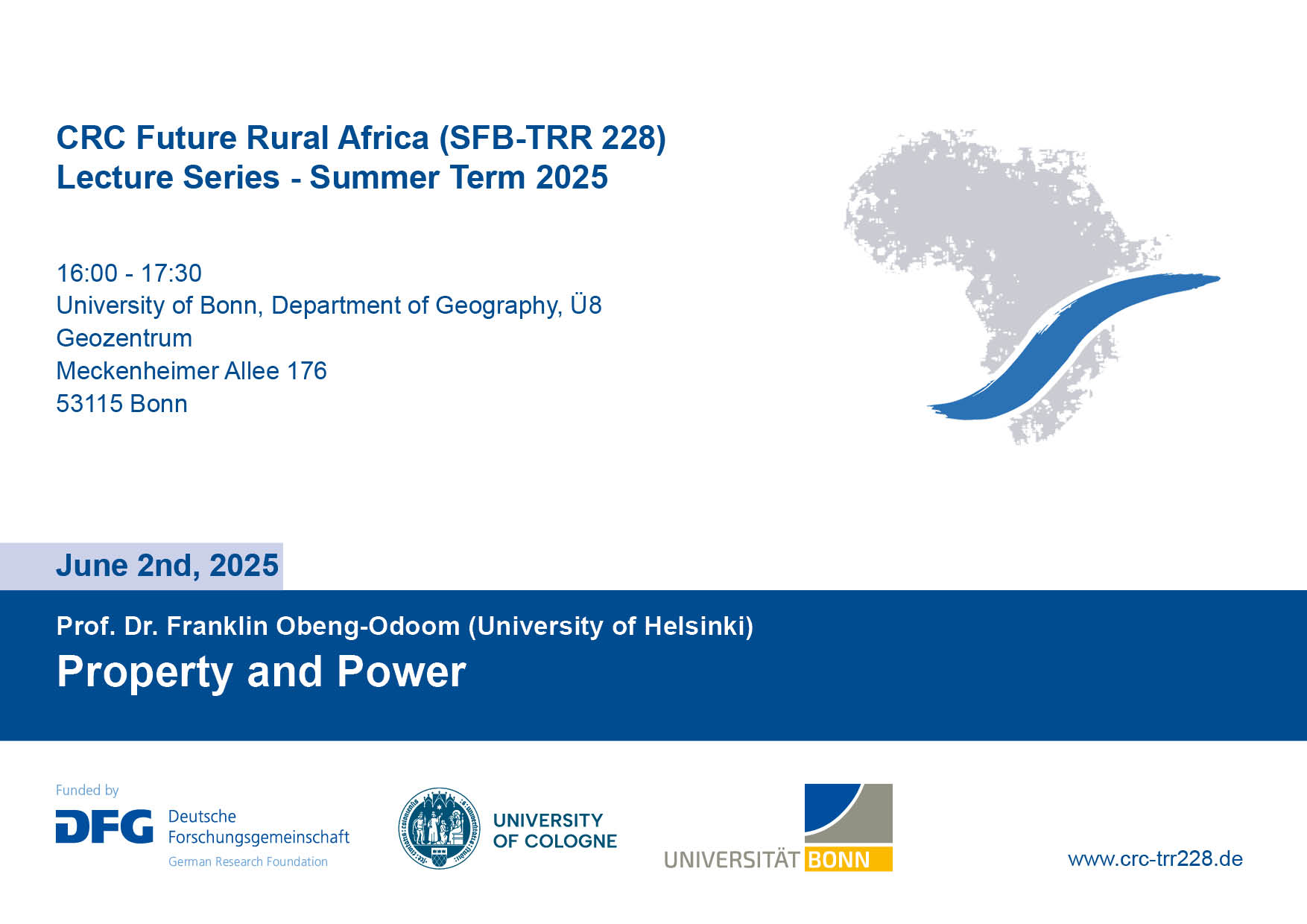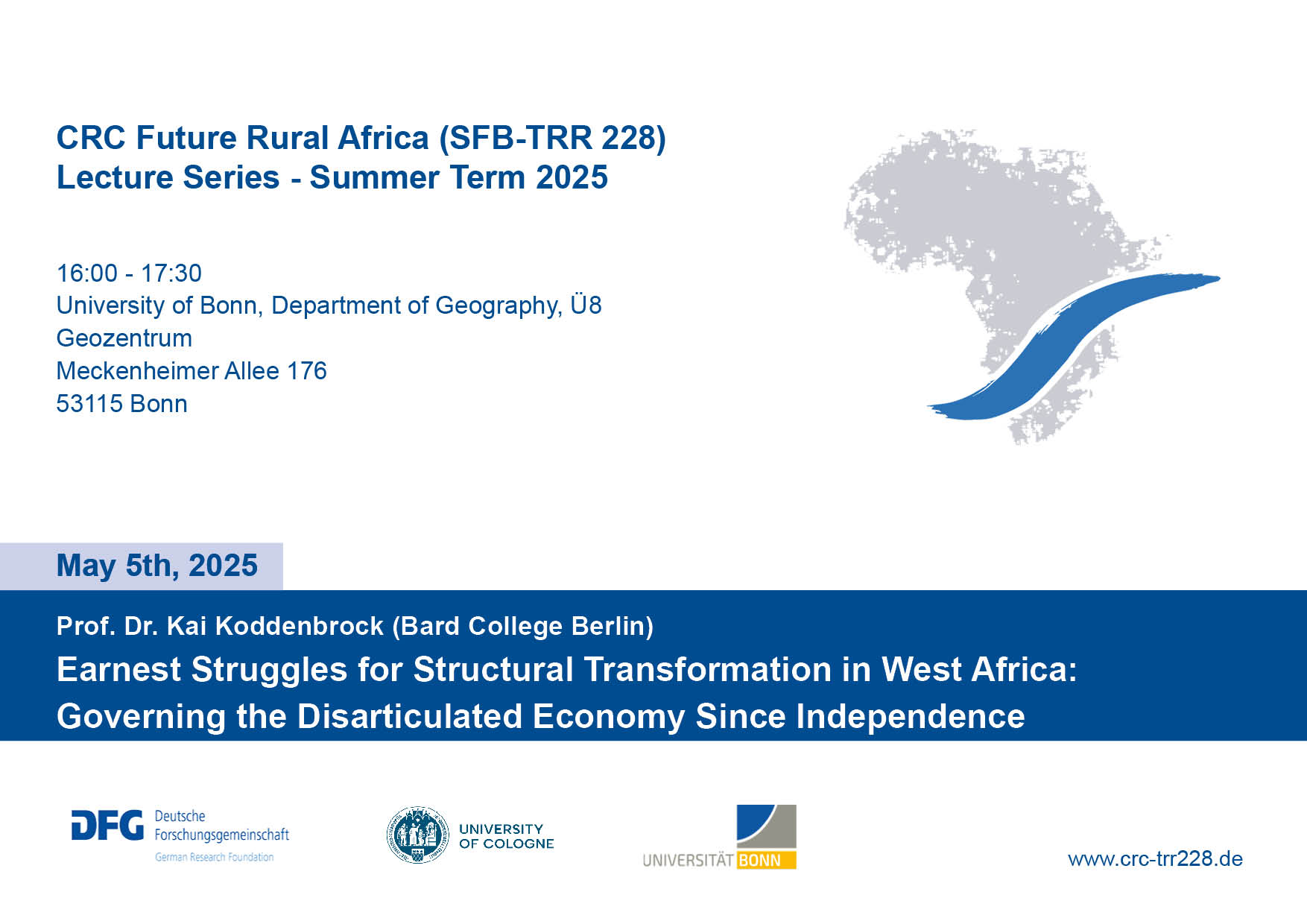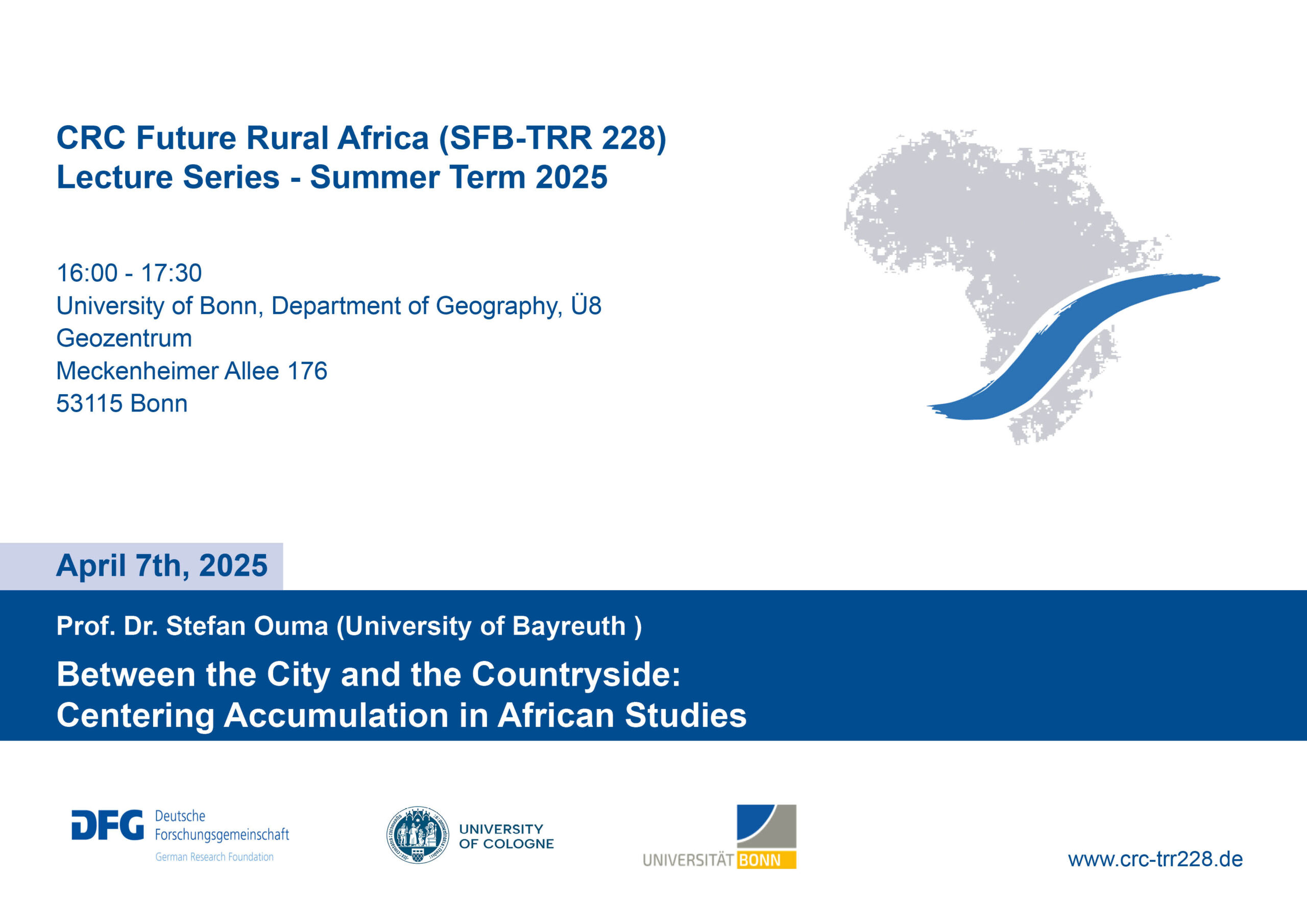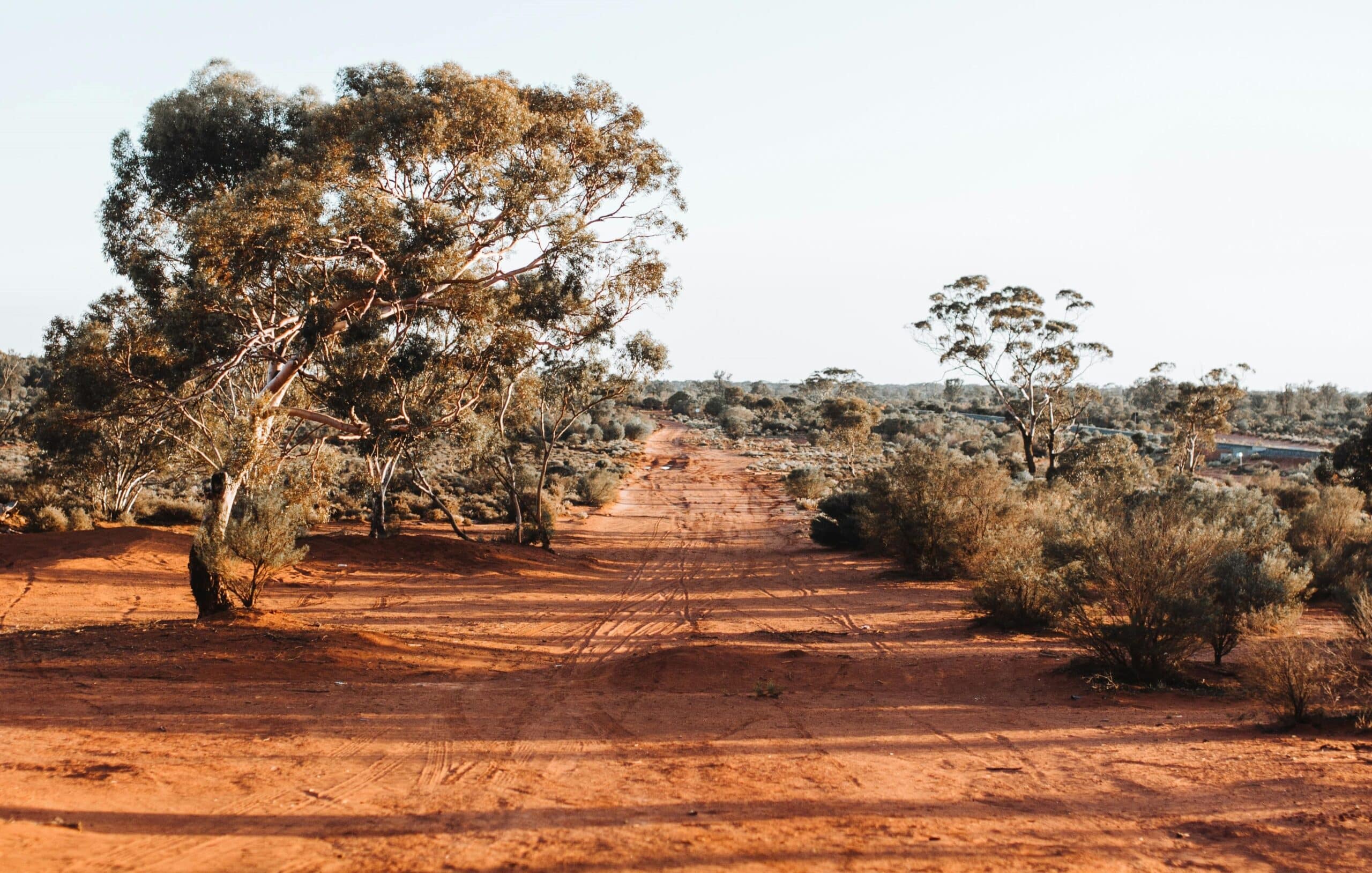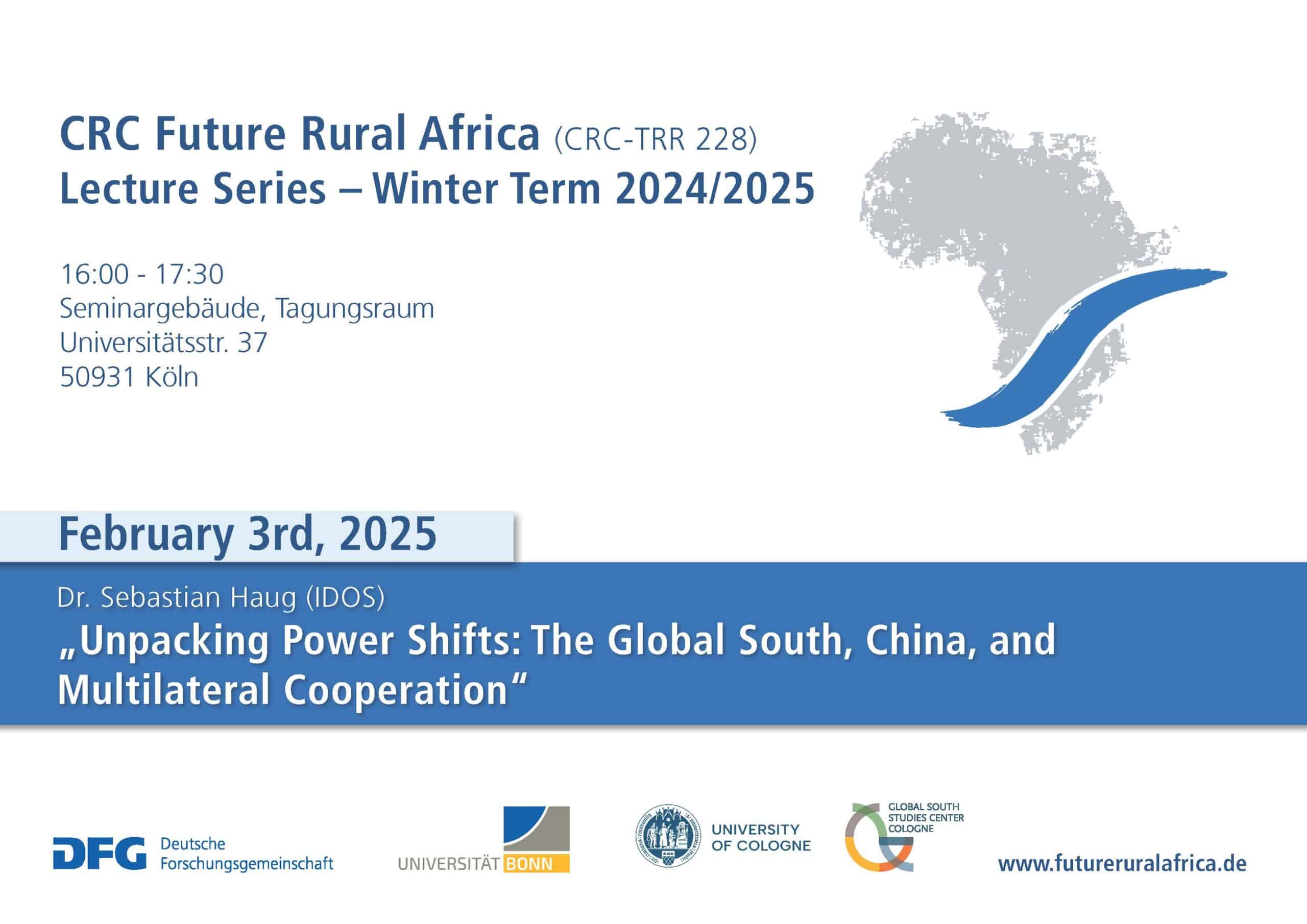Date: 28.05.2018 Time: 16:15 – 17:45
Prof. Dietz: Participatory assessment of rural development and change. African experiences
Between 2000 and 2015 I experimented with a bottom-up method of evaluating the long-term impact of ‘development projects and programmes’, and the assessments of local people about these (often external) interventions. It started in the Pokot area in Kenya, and continued in Ghana, Burkina Faso, and Benin as the ‘PADev method’. Later it was adopted by others elsewhere. I will discuss the experiences with developing this method, and with the communications about its results. For preparations: please visit www.padev.nl
| Place: | Dept. for Geography, Geozentrum |
| Address: | Bonn, Meckenheimer Allee 176, |
| Room: | Übungsraum 8 |
| Host: | CRC 228 |
Date: 11.06.2018 Time: 16:15 – 17:45
Prof. Spierenburg & Luuk van Kempen: ‘We agreed to move, but we did not do so freely’. Resettlement from the Great Limpopo Tranfrontier Park
This presentation addresses the impacts of the establishment of the Great Limpopo Transfrontier Park on residents in the Mozambican part of the park. While the area originally was designed as a multiple-use area, both South African conservation authorities and the Peace Parks Foundation pushed for the adoption of the Kruger National Park model in the area directly adjacent to its border. As a result, 7000 residents in the newly established Parque Nacional do Limpopo were – and still are – threatened with eviction. Resettlement of the residents was presented as a development project by Mozambican authorities and South African promoters of the tranfrontier park. This presentation addresses the conflicts over the resettlement process and (lack of) compensation, and the impacts on residents’ livelihoods.
Prior to the presentation Luuk van Kempen (Radboud University Nijmegen) will offer a sneak preview of a new research project on the role of CSOs in land rights advocacy in Kenya. This project, which involves collaboration between the Radboud University Nijmegen, the African Studies Centre Leiden (the Netherlands) and Moi University (Kenya) started in December 2017.
| Place: | Dept. for Geography |
| Address: | Cologne, Otto-Fischer-Straße 4 |
| Room: | Übungsraum 4 |
| Host: | CRC 228 |
Date: 25.06.2018 Time: 16:15 – 17:45
Prof. Seefried: Global Futures? A Contemporary History of Futures Studies
This presentation provides a historical overview of the field of \’futures studies\’ from the 1950s up to the present, focusing particularly on \’Western\’ futures studies. The paper argues that the futures field was reconceptualized around 1970, shifting its perspective from a West-East perspective towards a global one. It analyses the epistemic roots, the drivers and actors as well as the political and social contexts of this shift, showing that the futures field was not only influenced by the events of the 1960s and 1970s but itself contributed to cultural and political change by stimulating circulating notions on \”One World\” solidarity and global futures. Through their insistence on the interdependence of environment and development, ‘futurists’ then laid the basis for political conceptions of sustainable development.
| Place: | Dept. for Geography, Geozentrum |
| Address: | Bonn, Meckenheimer Allee 176, |
| Room: | Übungsraum 8 |
| Host: | CRC 228 |
Date: 09.07.2018 Time: 16:15 – 17:45
Prof. Schlottmann & Prof. Graefe: Contested Constructions of wildlife in Namibian conservation practices – a conceptual framework
Wildlife management practices in designated areas underlie diverging rules and regulations, do involve different sets of actors and, most importantly, serve different ideas of nature, wildlife and its conservation. In order to understand contexts of struggle for sustainable wildlife conservation, as in the case of Namibia’s Northwestern region for instance, the interplay of imaginations, discourses and materialities must be taken into account. However, despite all theoretical trends towards such a “more-than-human” approach (Lorimer 2015), the concepts at play are clearly anthropocentric in that they assign human actors the dominant role for defining, allocating, conserving, or utilizing nature and its resources. We hence suggest to “follow the dualism” and to accept epistemological anthropocentrism as research perspective. The presentation will sketch a conceptual framework for practice-oriented research, which recognizes both, the contingency of constructions of wildlife and its resistant materiality.
| Place: | Dept. for Geography, Geozentrum |
| Address: | Bonn, Meckenheimer Allee 176, |
| Room: | Übungsraum 8 |
| Host: | CRC 228 |


